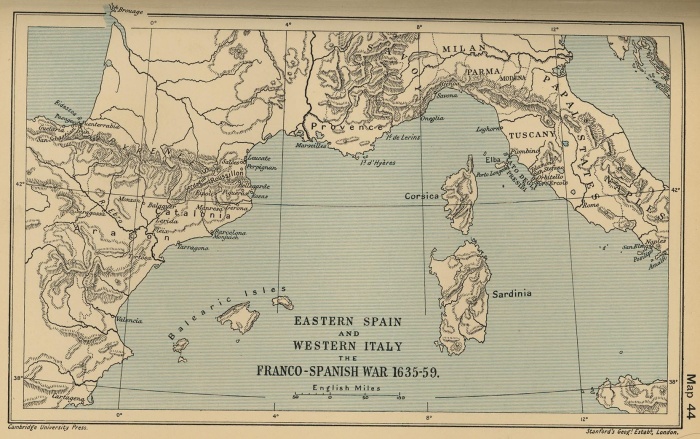Displaying image 68 of 467 images in History.
1622
The occupation of the Valtelline Pass (between Milan and the Austrian lands) by the Spanish led to war with France, which, in a sense, was merely one aspect of the Thirty Years' War. France, under the able leadership of Richelieu, gradually established its ascendancy over Spain.
1640–59
The great REVOLT IN CATALUÑA, a direct result of the policy of Olivares. The king's failure to summon the Catalan Cortes, the imposition of new taxes, the demands for aid for the foreign wars, the quartering of troops in the country, and in general the centralizing tendencies of the count-duke precipitated the conflict. The movement was supported by France, which even recognized a Catalan republic. After the struggle had gone on for 12 years, Barcelona was obliged to submit (Oct. 1652). In the final settlement (1659) the Catalans retained most of their former rights and privileges.
TREATY OF THE PYRENEES (signed on the Isle of Pheasants, in the Bidassoa River). Spain was obliged to cede to France the frontier fortresses in Flanders and Artois as well as Roussillon and Cerdagne. Louis XIV married Maria Teresa, daughter of Philip IV.
Source: The Encyclopedia of World History, Sixth edition. Peter N. Stearns, general editor. 2001, by Houghton Mifflin Company



 Searching...
Searching...

 Previous
Previous
 Next
Next